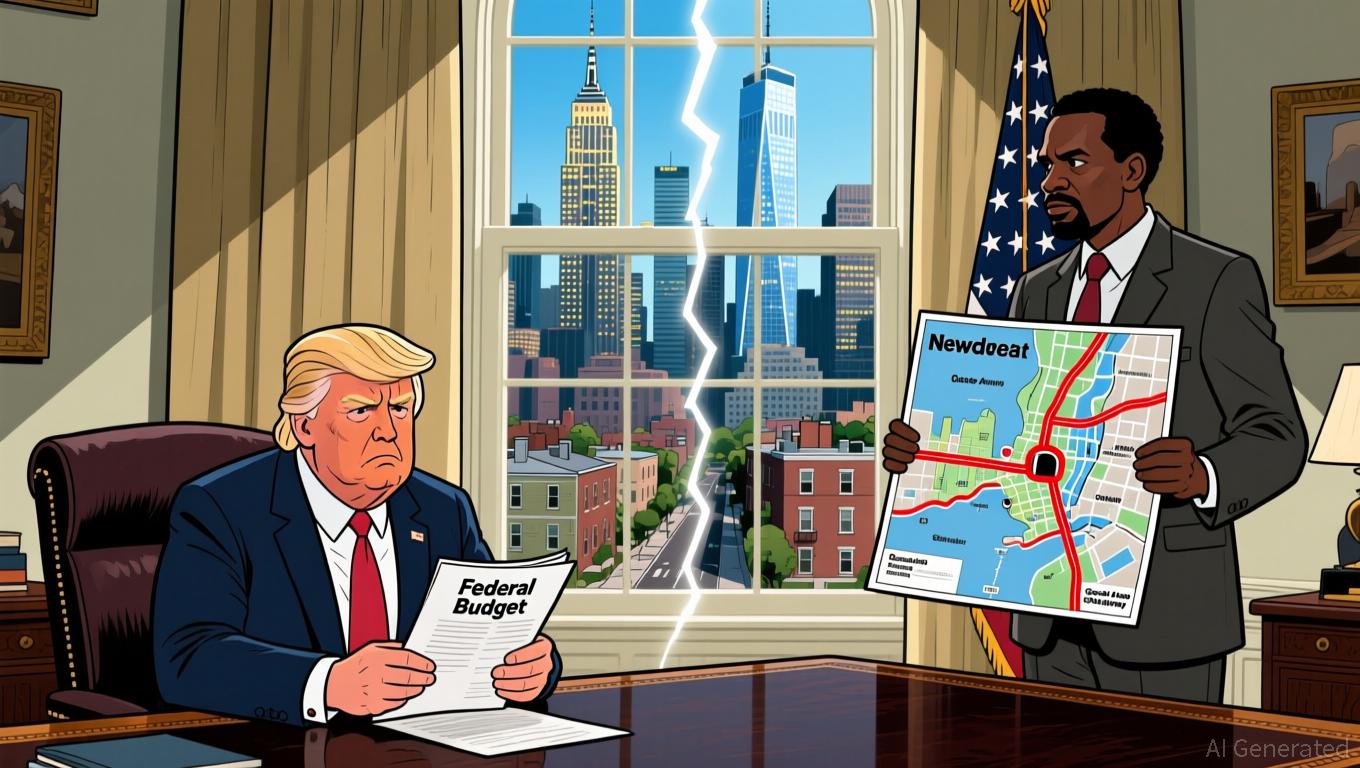Tech and Banks: South Korea's Stablecoin Regulations Ignite a Financial Transformation
- South Korea plans to ease stablecoin issuance rules, allowing non-financial firms to enter the market. - The policy shift aims to boost digital finance but faces bank resistance over market competition and regulatory risks. - Banks seek collaboration on compliance while tech firms push for innovation in AI-driven financial infrastructure. - Critics warn of banking sector instability, but proponents highlight growth potential in global digital currency trends. - Legislative approval is pending, with impli
Regulators in South Korea are set to relax rules surrounding the issuance of stablecoins, a development that could significantly alter the nation’s financial sector and heighten rivalry between established banks and major technology companies. The Financial Services Commission (FSC) is reviewing a plan that would permit non-financial entities, such as leading tech corporations, to create stablecoins
If implemented, the policy would represent a sharp departure from the 2019 ban on cryptocurrency and stablecoin issuance in South Korea. The government now seeks to establish itself as a frontrunner in digital finance by allowing major tech and fintech players to participate. However, industry experts caution that this could erode banks’ market position,
The FSC’s considerations are part of a larger initiative to modernize the South Korean economy. Recent trade deals with the United States, which involve pledges to invest $350 billion in key American industries, have led South Korean firms to focus more on domestic investments. For example, Samsung Electronics and Hyundai Motor have

The ongoing regulatory discussion also overlaps with South Korea’s efforts to strengthen its AI infrastructure. Princeton Digital Group, a data center company supported by Warburg Pincus, recently
Some critics warn that letting non-financial companies issue stablecoins could destabilize the banking industry, especially if tech giants use their extensive user networks to dominate payments and money transfers. Supporters, on the other hand, point to the opportunities for innovation and economic expansion. “
The FSC’s proposal is now pending legislative review, with the National Assembly slated to discuss the measure in the near future. Should the policy be approved, South Korea could become a leader in the worldwide shift toward digital currencies, while also challenging the adaptability of its traditional banking sector amid rapid innovation.
Disclaimer: The content of this article solely reflects the author's opinion and does not represent the platform in any capacity. This article is not intended to serve as a reference for making investment decisions.
You may also like
Ethereum News Today: Ethereum Faces $2,800 Test—Will It Surge to $3,000 or Retreat to $2,300?
- Ethereum tests $2,800 resistance, key threshold for November, with potential to rebound toward $3,000 if breakout succeeds. - Recent $55.7M inflow into ETH ETFs, led by Fidelity’s FBETH, signals cautious institutional interest after nine-day outflow streak. - Technical indicators show improved momentum with RSI rebound and MACD stabilization, but $2,800 remains critical for further gains. - Derivatives data and Coinbase’s ETH-backed lending expansion hint at conditional recovery, though liquidation risks

Ethereum Updates: Centralized DNS Compromise Highlights DeFi Weaknesses as Aerodrome Suffers $1 Million Loss
- Aerodrome Finance suffered a DNS hijacking attack on Nov 22, 2025, redirecting users to phishing sites that siphoned over $1M in assets through deceptive transaction approvals. - Attackers exploited vulnerabilities in centralized domain registrar Box Domains, forcing users to approve unlimited access to NFTs and stablecoins via two-stage signature requests. - The protocol shut down compromised domains, urged ENS-based access, and revoked recent token approvals, marking its second major front-end breach i

Trump and Mamdani’s Bet on Affordability: Uniting Opposing Ideologies
- Trump and Mamdani's Nov. 21 meeting highlights clashing ideologies on affordability and governance, with New York's $1.286T economy at stake. - Both leaders share focus on cost-of-living crises but differ sharply on solutions, with Trump threatening federal funding cuts and Mamdani advocating rent freezes. - Experts see the dialogue as critical for redefining strained city-federal relations, emphasizing urban centers' role as economic engines. - Mamdani's corporate tax proposals clash with Trump's deregu

Bitcoin News Update: Navigating Crypto’s Balancing Act to Steer Clear of 2018’s Downturn as Global Economic Conditions Evolve
- Crypto markets avoid 2018-style collapse as macro-driven cycles and reduced speculation prolong volatility, per Lyn Alden. - Fed policy uncertainty and leveraged ETF launches highlight risks and innovations amid $2.2B crypto outflows and $914M liquidations. - MSTR's BTC gains and Gunden's $1.3B sell-off reflect divergent investor strategies, while Munari's Solana project targets long-term adoption. - Analysts split between 65-70% Bitcoin retracement forecasts and prolonged cycles driven by institutional
